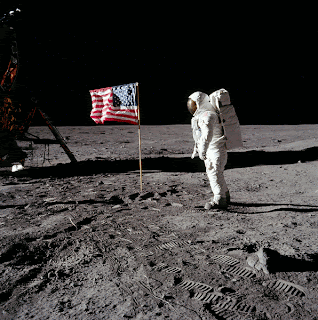
In the 50 years since Yuri Gagarin first soared into space, 520 men and women have taken their own space odysseys. They have come from 38 countries, carried on American, Russian and, recently, Chinese vehicles. All have been proud to represent their nations. Now, in a special issue honouring their achievements, FT Weekend Magazine has interviewed an astronaut from 35 of these countries. The project involved 17 writers, 11 languages and a rather flustered mission control – but it resulted in stories as diverse and entertaining as the voyagers themselves. May we present … the astronauts of Planet Earth.
The human history of space began on the morning of April 12 1961. After a breakfast of meat paste and marmalade, squeezed from a tube, a 27-year-old lieutenant in the Soviet air force, Yuri Alekseyevich Gagarin, was helped into a bulky orange flying suit. With his back-up, Gherman Titov, he was driven in a bus to a launch pad on the desolate Tyuratam missile-testing site on the steppes of Kazakhstan. According to Soviet lore, Gagarin then gave a short speech to the crowd of engineers, scientists and mechanics gathered in the early morning sunshine. “Dear friends,” he began. “What can I tell you in these last minutes before the launch? My whole life appears to me as one beautiful moment. All that I previously lived through and did, was lived through and done for the sake of this moment.”
Those words, written for Gagarin, had actually been recorded in Moscow. On the morning of his flight, he simply said goodbye, clanked helmets awkwardly with Titov, and was then taken up and strapped into a small spherical pod attached to a 300-tonne rocket that had been designed to carry nuclear weapons. For the next two hours, as the scientists fussed and took tranquilliser pills, Gagarin became slightly bored and asked for some music to be piped in. He said the first, true human words of a cosmonaut as his Vostok “satellite-ship” began to rise from the earth at 9.06.59am, his heart beating almost three times a second: “Let’s go!”
Read More
The human history of space began on the morning of April 12 1961. After a breakfast of meat paste and marmalade, squeezed from a tube, a 27-year-old lieutenant in the Soviet air force, Yuri Alekseyevich Gagarin, was helped into a bulky orange flying suit. With his back-up, Gherman Titov, he was driven in a bus to a launch pad on the desolate Tyuratam missile-testing site on the steppes of Kazakhstan. According to Soviet lore, Gagarin then gave a short speech to the crowd of engineers, scientists and mechanics gathered in the early morning sunshine. “Dear friends,” he began. “What can I tell you in these last minutes before the launch? My whole life appears to me as one beautiful moment. All that I previously lived through and did, was lived through and done for the sake of this moment.”
Those words, written for Gagarin, had actually been recorded in Moscow. On the morning of his flight, he simply said goodbye, clanked helmets awkwardly with Titov, and was then taken up and strapped into a small spherical pod attached to a 300-tonne rocket that had been designed to carry nuclear weapons. For the next two hours, as the scientists fussed and took tranquilliser pills, Gagarin became slightly bored and asked for some music to be piped in. He said the first, true human words of a cosmonaut as his Vostok “satellite-ship” began to rise from the earth at 9.06.59am, his heart beating almost three times a second: “Let’s go!”
Read More
No comments:
Post a Comment